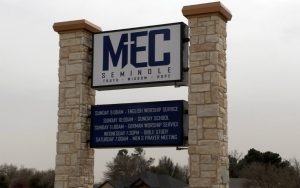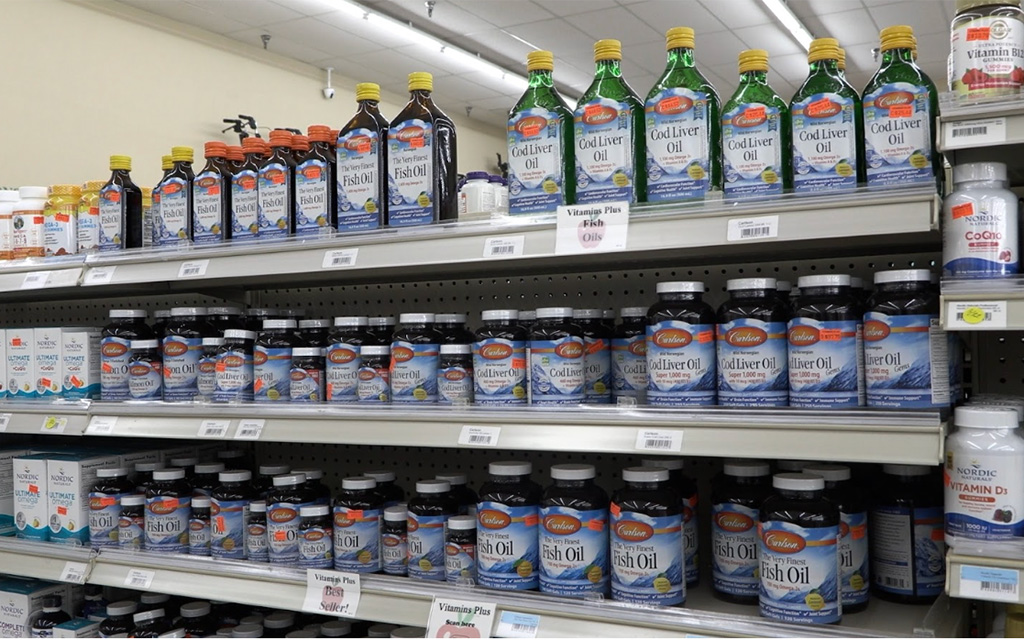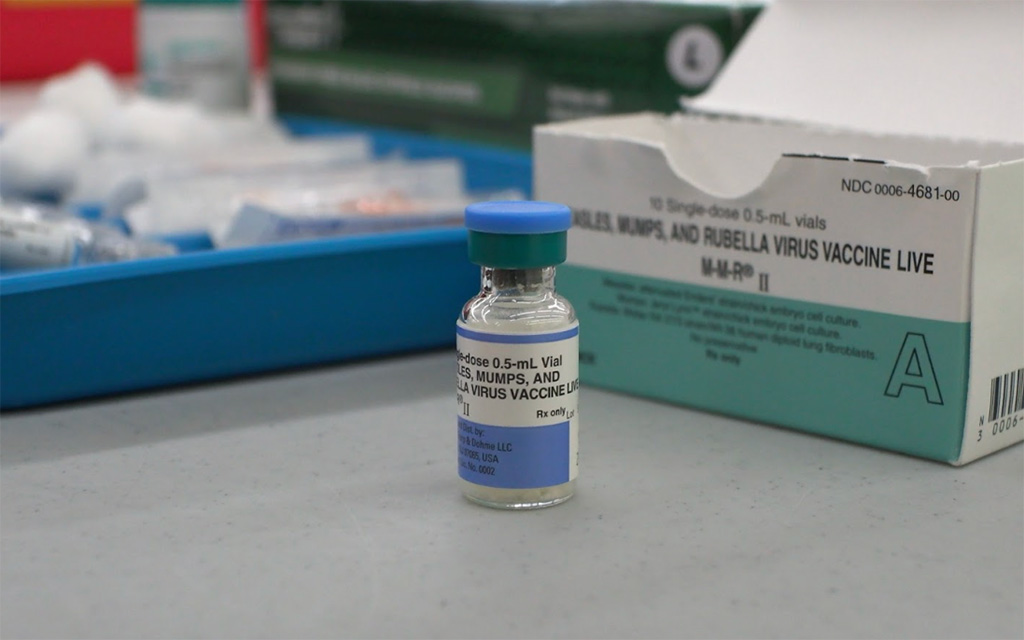SEMINOLE, Texas — Gaines County in rural West Texas, home to 21,000 residents and known for its peanut farming and cotton production, typically remains quiet.
The county is currently at the center of media attention following hundreds of reported measles cases, including one that resulted in the death of a 6-year-old from the disease that once was officially declared eradicated from the United States.
Seminole, the county’s administrative center near the border with New Mexico, is the birthplace of musician Tanya Tucker and home to a few thousand residents, many of whom are German Mennonites. In the late 1970s, the town saw its last wave of immigration, when the Mennonite communities from the Russian Empire – arriving via Mexico and Canada – settled there.
Jake Fehr, a pastor at the Mennonite Evangelical Church (MEC) in Seminole, which serves approximately 800 members, speaks with measured pacing both during the sermons and while addressing latest public health concerns. He stressed that the congregation left the decision whether to vaccinate or not “in the hands of the families.”
This echoes, in some ways, the stance of Health and Human Services Secretary Robert F. Kennedy Jr., who suggested a preference for voluntary rather than mandatory vaccination during a Fox News interview.
“We have had a handful of children that over time contracted the measles, but I have not seen a child within the congregation while they had the measles,” Fehr said. “I think our church family as a whole did a fantastic job just staying home getting through that.”
Fehr described the German Mennonite congregation as a community with deep ties that prefers natural medicine over visits to doctors: “These are your people that make their sourdough.”
While acknowledging hesitation toward vaccination and the high number of measles cases, Fehr said the community’s approach to the outbreak was not “directly” a religious issue.

The Mennonite Evangelical Church serves about 800 people in Seminole, Texas. Photo taken March 18, 2025. (Photo by Isaias Soto/Cronkite News)
“It’s rather, I think, a reflection of their pessimism of some of the medicines and vaccines,” Fehr said.
Besides inquiries about religious exemptions from vaccinations, Fehr stayed away from guiding the congregation or individual members on the matter, referring to the Bible, which does not state whether one should vaccinate or not.
“Let’s take 1 Corinthians 16:19-20 as an example, that the bodies are the temples of the Holy Spirit. … Therefore, we’ve often written exemptions that state, look, we believe that a person has their own right to choose what is good for their body and what is not.”
Two miles east of the Mennonite Evangelical Church, a local community center, the Gaines County Civic building, holds vaccine events that typically stay open on Tuesdays, but had to shut down due to an intense wind alert on March 18. The only indicator that vaccines were available nearby is a small paper sign held together by duct tape that read “measles vaccine clinic.”
This year, the local health department, South Plains Public Health District (SPPHD), tried something different: it rolled out vaccination stations at the Mennonite Evangelical Church parking lot as well, offering the MMR vaccines to willing patients.
“It felt a little bit like there was a kind of behind-the-scenes way of, let’s get into their parking lots, and maybe that will help convince families that we want the German community to vaccinate,” Fehr said.
The effort had the opposite effect on the community, Fehr said, and made people feel “targeted.”
“I think it’s sort of unintentionally backfired. I think people were reluctant at that point. They said, ‘You know what? That’s the focus here, the Mennonite people.’ I think they sort of retaliated, if you will,” Fehr said.
Zach Holbrooks, the public health director of SPPHD, declined to speak with Cronkite News about the outbreak and how Seminole is handling it.
Once a pharmacy chain with hundreds of stores nationwide, Drug Emporium has now shrunk to a dozen, one of which is located in Lubbock, a city northwest of Seminole and a little over an hour drive away. Lubbock’s clinics, hospitals and pharmacies saw an influx of patients seeking medical attention, vaccines for measles, hospitalization and vitamins.
Drug Emporium is a run-of-the-mill alternative to Walgreens and CVS here, offering vaccines and a wide range of over-the-counter medications, vitamins and supplements – with the latter two in seeing increased demand.
“I wouldn’t say it’s been a frenzy, it’s not like COVID with toilet paper,” pharmacy manager Tyler Schultz said with a laugh.
He noted that, in addition to requesting vaccines, customers were also asking about vitamin A and cod liver oil.
“I’ve talked to my vitamins manager … and they said it slowed down just a little bit in the last week or so but they definitely noticed they were ordering a lot more, especially the cod liver oil.”
RFK recently promoted cod liver oil, rich in vitamin A, as a preventative measure and treatment for measles. Medical experts caution that vitamin A is not a substitute for vaccination.

The Drug Emporium pharmacy shelves Lubbock, Texas, on March 17, 2025. The pharmacy saw an increase in the purchase of vitamins and supplements amid a measles outbreak. (Photo by Isaias Soto/Cronkite News)
“Listen to the people with the NP behind their name, with the MD behind their name, (to the) people with this specialized training,” said Alexis Koskan, a vaccine researcher at Arizona State University, adding that RFK is a political figure, not a medical professional.
Lubbock responded actively to the outbreak after confirming two cases, said the city’s Director of Public Health Katherine Wells: “They (two hospitalized children) had a rash, fever, kind of the classic signs of measles. We found out that those children did indeed have measles, and that initiated a public health response.”
Wells said most of the measles cases that followed have involved unvaccinated children between the ages of 5 and 17.
According to the CDC, the first dose of the measles vaccine is available at 12 months old, and the second dose is given between the ages 4 and 6.
The MMR vaccine – which offers protection against measles, mumps and rubella – is highly effective, according to the CDC, offering about 90% protection after one dose and 97% after two.
“Children under the age of 5 are the most at risk for severe complications from measles,” Wells said. Beyond hospitalization, patients can experience complications such as brain swelling, pneumonia and even death.
Out of 483 confirmed measles cases nationally, more than 250 have been reported in Texas, with the majority involving unvaccinated individuals or those with unknown vaccination status.
This is the largest reported statewide measles outbreak since one in early 1990s that grew to 990 cases.
In response to the outbreak, the Lubbock Health Department has also set up vaccine vans in the building’s back parking lot as well as in a renovated former Dollar Tree store next door.
Bina Pani Gayen, who is getting ready for her first year of college, arrived at the site with her four siblings to get their first doses.
“We have been feeling ill for a few days, and I feel like almost all members of my family were just sick,” Gayen said. “We couldn’t even enjoy our spring break.”
Each family member took a seat in the vaccination clinic and filled out a brief health history before getting a shot. “I have suffered from mumps before. So yeah, I needed this vaccine,” Gayen said.
The NIH has recently announced its abrupt termination of research grants surrounding the studies of vaccine hesitancy and evaluating strategies that would encourage vaccine uptake.
The CDC has been working on an assessment that tracked high-risk areas with low vaccination rates but ordered its staff not to release the report in an alignment with RFK’s beliefs about vaccination, according to a ProPublica investigation.
The CDC still recommends vaccination as the most effective way to protect against measles.
Late Tuesday evening, Texas health departments received a notice about the federal funding freeze as the Trump administration pulls back billions from health departments in COVID-19 funding. This raised concerns among public health officials that the move undercuts Texas agencies working to combat the outbreak.



